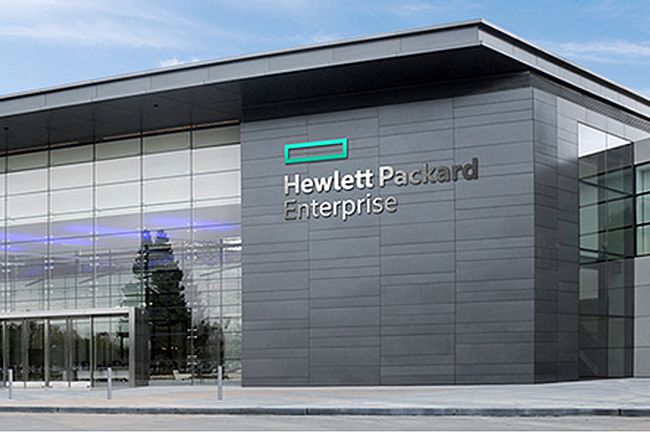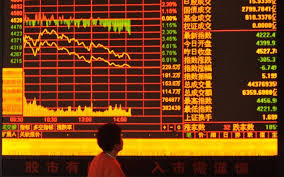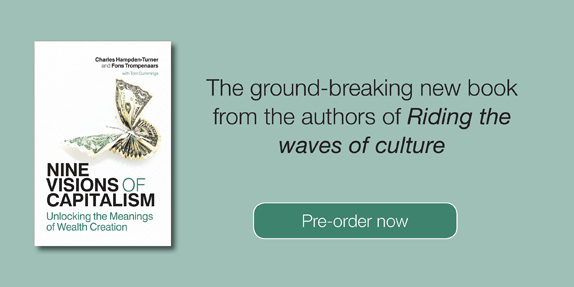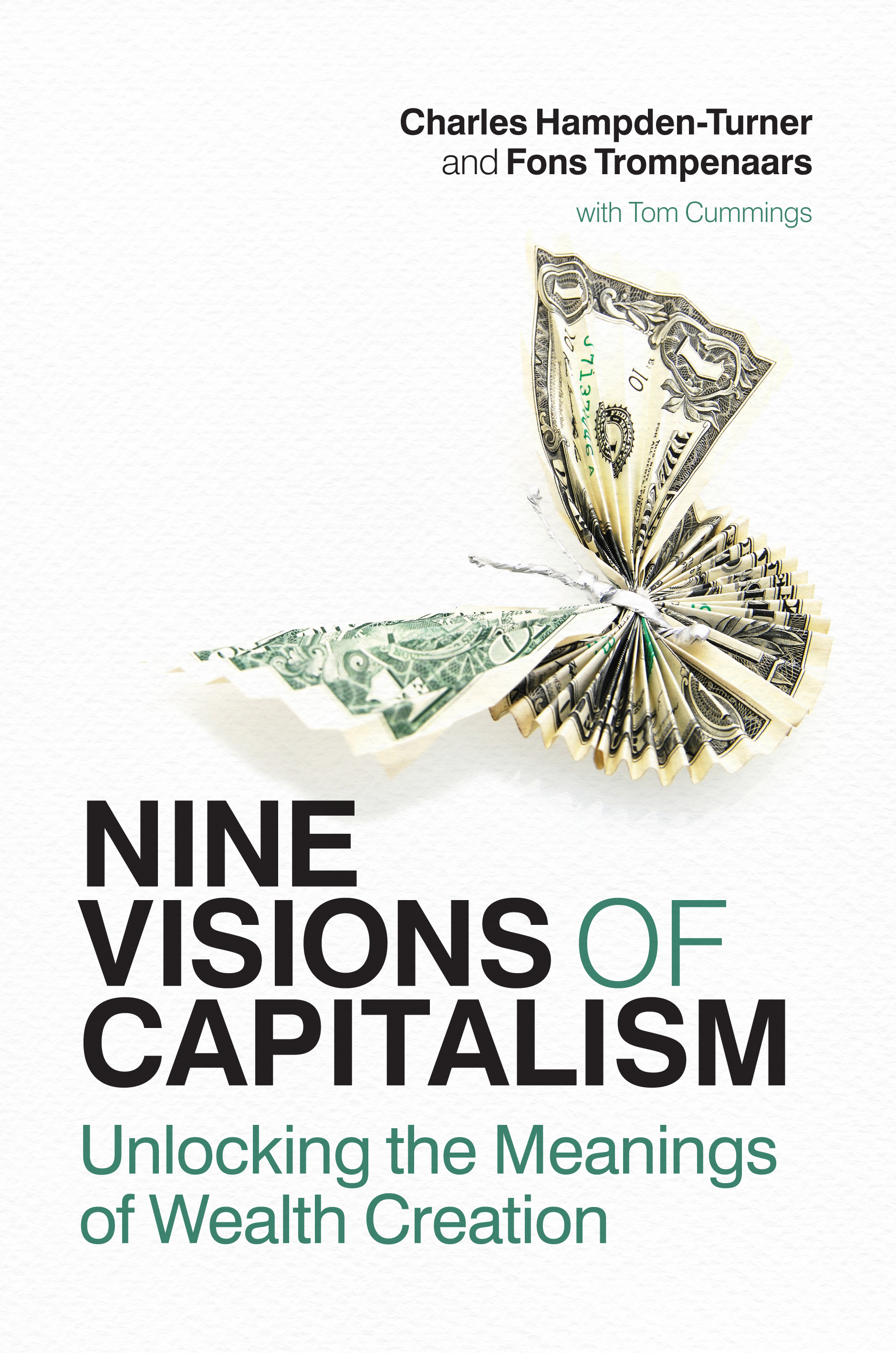Author Archives: Catherine Holdsworth
Was Steve Jobs a conscious capitalist?
30 September 2015 by Catherine Holdsworth in Business and finance, Entertainment, Nine visions of capitalism
Unless you’ve been hiding under a rock for the past few months, then you may have heard about a new film coming out this Christmas about the late Apple CEO, Steve Jobs, entitled, Steve Jobs. With the star Michael Fassbender already tipped for Oscar success, the film has been plagued with scandal since before it was even put into production. Though Fassbender may have done a good job, after the Sony hack, it was revealed that writer Aaron Sorkin didn’t even know who he was. How opinions can change.
Two trailers have been released so far for the film and, if they’re anything to go by, it doesn’t look like Jobs was the type of person you’d want to invite round for a cup of tea. So focused on his job was he, that he neglected his daughter in pursuit of building up his company into an empire. That he did. There are Apple products all around you, all you have to do is step out of your door and you’ll see someone on an iPhone, chatting, texting or instagramming their lives. Apple is more than a technology company, it is a lifestyle for millions of people. Every time a new model of iPhone is released, there are people who are selling their grandmother to be the first in line to get their hands on the new model. We all remember that rather odd woman who had queued in New York for a new iPhone, just because she thought she should, and had no idea why she really wanted it. Apple has saturated the market so much that, though Microsoft and Bill Gates’ empire is still incredibly successful, even those who own a PC are aware of how good Apple is. To collect them all, as Pokemon fans would say, is to shell out thousands of pounds, and then more to update your collection. When does it end? And should I be ashamed of my 2009 iPod nano that is hiding in a drawer at my parents’ house?
That iconic combination of jeans and polo neck has cemented Jobs as an easily-recognisable figure and the face of Apple. There’s no doubt that Jobs achieved extraordinary things with Apple, but is the company promoting conscious capitalism? Charles Hampden-Turner and Fons Trompenaars, authors of Nine visions of capitalism, suggest that Jobs and the Apple corporation were winners with their very first product:
The computers produced by Acorn and the BBC Micro ‘failed’ to match the appeal of the Apple I. In reality there were a number of contributing factors: the USA has a much larger and more demanding market; California legislators approved a free Apple for every public school, provided that school purchased a second; a new mass market was created that shut imports out; and Apple was pitched in terms of personal liberation from IBM, the rebellion of a defiant citizenry against a corporatist ethos.
So Apple asserted that it was a cool company from the start. We all remember those really fun Apple Macs that were brightly coloured, they were not designed to appeal to Wall Street stockists, they were for the young, hip students and start-ups. They epitomise the rise of Silicon Valley: exciting, fresh and completely different to the stuffy companies that make you work ridiculous hours and resent your job. Yet Apple too makes you work ridiculous hours, by providing free food, gyms and making the office a welcoming environment, employees don’t want to go home. Essentially, they are in it for life (or at least as long as they work there). The opportunity for Netflix and chill is sadly lacking. Last October, Apple HR demonstrated it’s conscious capitalism by unveiling its philanthropy programme, and it would match any donation to causes that its employees made.

In an age where most all of us in the Western world own a laptop, smart phone and most likely an Apply product or two, these companies are literally part of millions of people’s lives. Capitalism affects us on a global scale and Apple’s stocks just keep growing. New technologies are being developed and to stay current, you have to stay ahead of the competition. But to appeal to the masses and to remain in our pockets, you have to be conscious of what the consumer wants. Earlier in the year, when Taylor Swift called Apple out on their policy of not paying artists for the first three months of Apple Music, Apple responded, ‘we hear you, Taylor Swift’ in an attempt to appeal human, they came out smelling of roses when they could easily have ran into a PR blunder. By looking like they care about what Swift and other artists had to say, they showed their conscious capitalist ethics.
Whether you believe that Jobs was a conscious capitalist or not, he managed to create a company that has changed millions of lives and made his mark on the twenty-first century. I’m not sure whether the film is supposed to make Jobs look like a complete tool when it comes to his personal life, but perhaps it is showing us that, for Jobs, the company came first, and as a consumer, that makes me feel a lot better!
Do company take-overs help or harm the economy?
21 September 2015 by Catherine Holdsworth in Business and finance, Nine visions of capitalism
By Charles Hampden-Turner, co-author of Nine visions of capitalism.
The City and Wall Street head the world in mergers, acquisitions and take-overs. The conventional wisdom is that if Company A has more money than Company Z then it should be allowed to take it over. This will help us all since the more successful companies are taking control of the less successful, the very rich are acquiring those of lesser means and therefore the whole economy improves. If you can convince shareholders that they can earn more when Company A takes over Company Z then this will put the target company under better management than before. Those with the most cash to spare are better by definition.
But is this so? Affluent economies are expensive places to make goods and services. Nearly all standard products are cheaper to produce elsewhere. The major exceptions to this rule are innovative products and services. If your product is original you have no competitors for several months or more and can charge for it what the market is prepared to pay. We in the West must innovate or die. There are signs that we are meeting this challenge to some extent but the question arises as to whether large companies that like to acquire others are as innovative as the companies they are gobbling up. The evidence is that most innovation comes from start-ups and relatively small companies. These are not only many times more creative but have much better labour relations, evoke more loyalty, spend more on training their people, think longer term, have better more trusting relationships and serve their customers and communities better. Gallup has found again and again that most citizens like small companies and trust them whereas up to 80% dislike large companies and distrust them. With size there comes bureaucracy, formality, rigidity and pre-programmed behaviour. To have these larger companies gobble up the small may be of very doubtful benefit to these smaller companies, to our economy and to our society.

In any event how can you ‘buy’, ‘own’ or ‘take over’ someone else’s genius? Hewlett Packard bought Autonomy for $1.7 billion, 79% above its market price and had to write down its value by $8.8 billion only months later. This is presently under furious litigation with accusations of deliberate misinformation filling press reports. We know nothing of these details and take sides with neither litigant. We would point out however that the value of information within the heads of genius founders is very difficult to know, hard to value properly and almost impossible to ‘acquire’. In the absence of a good and close relationship with that genius the value of intellectual property will melt away. The 79% premium over market price depended on the sharing of future strategies. How much s/he shares with you is largely optional and you may gain or lose you billions. You can legally mandate that the founder stays in your company for X years but not what will happen during that interval. In any case having received much of your money the genius cannot wait to found another start-up with the money made. Why benefit someone who claims to ‘own you’ and demands that you report to her/him on a regular basis?
Hostile takeovers are especially tricky. You can acquire the real estate, the inventory, the machinery, products in the pipeline, even signed contracts but what the company had in mind for the future could be its most valuable asset and in the face of hostility you may never learn it. You have the bits and pieces but not the values which held these together and gave the company direction. Apparently 79% of the value of Autonomy lay in its future and HP could not afford to fall out with those envisioning that future. Of course there is good reason why large companies are risk-shy. They have mountains of money to lose and any gains would be fractions of that mountain, while start-ups have almost nothing to lose but have bright horizons to explore. The shareholders in large corporations have little appetite for risk. Their pensions are at stake, while the ‘friends, families and fools’ rallying round the founder of a new company relish the wild ride and hope to found a dynasty.
There is also the question of time. A small, privately owned company is thinking how to support the children and grandchildren of its owning family. This is a time-horizon of twenty to forty years. An investment made now could greatly assist your grandchildren. In contrast shareholders in a publicly owned corporation now retain their shares for an average of six to eleven months. They are less investors than traders and will trade on the basis of the latest quarterly report. To reduce risk they have tiny fractions of their portfolios in any one company, care little about that company and may not even know that they ‘owned’ it for a few months last year! It follows that having a private company acquired by a public one might actually harm the economy and greatly shorten its view of the future.
Nearly all investments that aim to grow a company take many years to pay back. R&D, executive development, increased quality, new plant and equipment may justify themselves ten to twenty years hence. In contrast selling your HQ building and leasing it back, buying your own shares so that the price jumps, laying off researchers and cutting the training budget will all produce more money for shareholders this quarter and the longer term damage will not be manifest for a few years, that is after the present CEO retires. His pension may be tied to profits! The company has become a machine for maximizing shareholders’ take and resources are transferred from those who do the actual work to those who collect rents.
Companies who are on an acquisition spree either accumulate a cash mountain so that they can pounce swiftly or they borrow extensively so that their acquisition is heavily in debt. Both tactics may be detrimental the target company and to the economy. The cash mountain is not being re-invested and the debt burdens and even cripples an acquired company which must now concentrate on repayment, not innovation. The truth is that investing in R&D and in the training of your own employees makes you vulnerable to being taken-over. The raider says to your shareholders, ‘would you not like the money being spent on employees in your own pockets now?’ The answer is often ‘yes’ and since those to whom this offer is made include the most senior people in the target company who typically have share options, they have personal reasons for selling out their company! No wonder that Professor Colin Mayer studying take-overs in the UK, especially that of Cadbury by Kraft, found that most of these acquired companies were well managed. It was precisely this which made them vulnerable. They were spending on the future and not today.
What seems to happen to companies who grow by acquisition is that they try to ‘buy the growth’ of others but do not grow organically themselves and the companies they acquire tend to stop growing and become ways of moving money to shareholders. No wonder that Virgin bought back its shares from the public, that Sainsbury’s fought off acquisition, that Hewlett Packard slashed its R&D spending much to the disgust of the founding family and that Chanel has refused all overtures. No wonder that Lidl and Asda are gaining at the expense of Tesco whose shareholders expect a larger slice of the supermarket pie. Privately held companies usually want to use money to create industry and make an industrious future for their families. Publicly held companies want to use industry to make money for their owners and see them enriched even at a cost of employees and customers.
Nine visions of capitalism by Charles Hampden-Turner and Fons Trompenaars
7 September 2015 by Catherine Holdsworth in Book publishing, Business and finance, Nine visions of capitalism
Capitalism in crisis: top culture management gurus map the route to a fairer global economy
Capitalism has been in a state of crisis for nearly a hundred years. The effects of the stock market crash of 1929 were felt well into the 1950s. The turbulence in international currency markets in the late 1960s, which sparked worldwide street protests in 1968, was unresolved until the mid-1980s. And the avalanche of financial crises that followed the failure of Lehman Brothers in September 2008 is still falling on businesses, consumers and communities around the world. In the face of such evidence it would be easy to think that capitalism is a doomed system.
However in Nine visions of capitalism: unlocking the meanings of wealth creation authors Charles Hampden-Turner and Fons Trompenaars suggest otherwise. Capitalism does have a future, they say, but only if the standard Anglo-American model of capitalism is radically transformed. As the authors point out, creating wealth is much more than simply making money. They say, “A community is only better off when it creates wealth through the transformation of money into products and services and the transformation of these back into money via revenue received.” The current model of capitalism has led to a situation where the net worth of the world’s top 10 billionaires stands at over $500 billion, enough to end world poverty instantly twice over. But the global economy is not richer for the presence of billionaires if the money in their pockets has simply been transferred from those of other people.
So how can this failing model be fixed? Hampden-Turner and Trompenaars argue that accommodating diversity is a pre-requisite for the reinvention of wealth creation. China’s spectacular growth, the dynamism and flexibility of the Mittelstand of German-speaking economies, Singapore’s hybridization of East and West, the world’s vibrant immigrant communities and the drive for renewable energy offer different aspects of an authoritative and challenging blueprint for the future of capitalism. Finally, the authors draw on examples of innovation in capitalism such as the Conscious Capitalism movement in the US, the Cambridge Phenomenon in the UK and the Global Alliance for Banking on Values, which has members from Mongolia to Patagonia as well as the US and UK, to demonstrate what can be done to reinvigorate tired models, and provide a realistic, practical and powerful transformation agenda for the global economy.
About the authors
Management philosopher Charles Hampden-Turner was Senior Research Associate at the Judge Business School at the University of Cambridge. The creator of Dilemma Theory and co-founder and Director of Research and Development at the Trompenaars Hampden-Turner Group in Amsterdam, he was Goh Tjoei Kok Distinguished Visiting Professor to Nanyang Technological University in Singapore in 2002–3 and Hutchinson Visiting Scholar to China in 2004. He is a past winner of the Douglas Mc Gregor Memorial Award and has received Guggenheim and Rockefeller fellowships. Fons Trompenaars is an organizational theorist, management consultant and bestselling author known globally for the development of the Trompenaars’ model of national culture differences. He was awarded the International Professional Practice Area Research Award by the American Society for Training and Development and Business magazine ranked him as one of the world’s top five management consultants. In 2013 he was ranked in the Thinkers50 of the world’s most influential management thinkers. He is the author or co-author of numerous books including Riding the Waves of Culture and 100+ Management Models.
Making money is not a reliable guide to creating wealth
1 September 2015 by Catherine Holdsworth in Business and finance, Nine visions of capitalism
By Charles Hampden-Turner, co-author of Nine visions of capitalism.
Unhappy is the economy which cannot distinguish the making of money from the creation of wealth for these are not the same. While creating wealth includes the making of money, the latter is a more narrow activity which can and does in many cases exclude the creation of wealth. Indeed it may even destroy wealth on an epic scale as occurred in 2008. This happens when money is made by taking it away from other people and/or appropriating this from Nature’s bounty. Profits can be made by plundering other people and the planet. So what is the crucial distinction?
The distinction we must bear in mind and was pointed out in the nineteen eighties by Lester Thurow and more recently by Gideon Rachman, is between the zero-sum game or system of competing and the positive-sum systems of wealth creation. In a zero-sum world all gains come from other people or at the expense of the environment. All resources are finite or scarce as economists still teach us, so that what one person gets another must forgo. Alternative value can be extracted from Nature’s bounty, leaving the rest of us poorer for this. Inequality escalates and as the song of the ‘roaring twenties’ put it, “The rich get rich and the poor get poorer, in the meantime, in between time, ain’t we go fun!” Making money by exploiting others creates no wealth. The others are soon too poor to buy very much. Pay-day loans were almost certainly wealth destroying as is loan-sharking in general.

So-called casino capitalism is very much a zero-sum game. Roughly half of all financial advisers are going to score below the Dow Jones average. This is not because they are stupid. Were they twice as clever this would still be their fate, since the average is the zero-sum of all their efforts which cancel each other out. Indeed there is a small overall loss since those running the casino need to be paid.
What then is a positive-sum game? This is where relationships between people generate more wealth than they began with. There is a surplus over and above the cost of what they generated which the parties share. The better wages and the higher share price put money into people’s pockets which they spend anew. Also the value delivered by the supplier may be hugely increased by the use to which the customer puts it. Both live in a world of abundance and this moulds their characters. We will cite examples of each.
In the case of Josiah Wedgewood, the world’s first tycoon, he took loads of red Staffordshire mud and with the help of pottery skills, new instruments he had designed, heat, paint and glaze he made a Portland Vase, Jasperware and other pots. Even in the currency of the times these were at least one hundred times more valuable than their ingredients and graced the royal tables of Europe. His medallion of a kneeling slave in chains culminated in the abolition of the slave trade after his death and it well symbolizes the two faces of capitalism in the distinctions which follow.
Or consider a more modern example. For a decade or more there have been more microchips than people in the world. It must be at least two or three times by now. A chip installed in your automobile can inflate an airbag before your child’s head can hit your windscreen in a crash. It can unlock doors so you can escape or rescuers can reach you and it sends out signals of your plight. In such cases it saves lives, reduces insurance premiums and enriches all concerned. Yet bits of metal and silicon sand cost next to nothing. You have put human intelligence and purpose into the chip and this comprises its value. Intelligent design followed by intelligent manufacture saves what is most precious to us, the lives we hold dear plus our own. As East Asians like to say, microchips are “the rice of industry”. They feed other businesses and give thousands of products meaning and direction.
This leads us to consider business-to-business wealth creation where the supply of one device allows a second task to be accomplished. Suppose we make number-controlled cardigan knitting machines. Once installed, these knit 2,000 cardigans in one day with sizes altered in seconds. The supplier creates wealth by the method already described. The whole machine is of far more value than its components, but his customer creates wealth by way of the machine functioning. Indeed the machine by itself is valueless. But the garments created at an attractive price make both money and wealth. Supplier and customer have engendered wealth between them, despite their different aims and purposes. In a further example, Rolls Royce aero-engines produce power-by-the-hour to convey people to far destinations. Wealth lies in what they do, not in the engine itself. Contracts even specify this.
We are now in a position to contrast Zero-sum money making with Positive-sum wealth creation.
| Zero-sum money making | Positive-sum wealth creation |
| Money is made by direct manipulation of the individual for his exclusive purposes. This money derives from other people | Money is made indirectly by first benefitting a customer who then reciprocates by bestowing more money upon you. |
We are getting ever more individualist, so much so that relying on the favour of other people is deemed unreliable. To be totally independent you need you need to outsmart them by taking their money. “Never give a sucker an even break” is our watch-word and we need “to make a quick buck” which is not possible when you rely on another’s gratitude. The real individualist acts unilaterally whether people like it or not. Our wits entitle us to this.
In contrast all genuine wealth creation inheres within relationships, so that the Chinese word for “rich” is “well connected” and guanxi or relationship is their chief business value. The whole must be more than its parts and design and manufacturing are all-important to being productive. Between us we create more than we started with and trust is vital. A research group at MIT studied what motivated 800 creators of open-source software and make this available to all. The originators said it was a gift by them to the online community and they were repaid in many ways. Such action triggers the productive efforts of others on a wide scale.
| Making money is via transactions in which one person receives money from another and gets goods or services back. The parties compete to get more from others at the least expense to themselves | Wealth is created by transformation of money into goods and services & their transformation back to money when sales are made. This is the source of the surplus value generated |
If the above statements are correct then we need to ask whether banks and financial institutions create wealth at all. They would appear to be sterile by dealing exclusively in money or “financial products” as they like to call them, but there is no transformation and no wealth creation. No two coins or notes cohabiting ever produced a third coin or ever will. So long as we stay with money there is endemic scarcity as economists teach, not the abundance of related brain cells and their associated meanings. Whatever trades’ unions receive shareholders and managers must forgo and the strategy of the latter is to pay as little as possible to remain competitive on costs. Taking money and creating a product and/or service from this is a transformation from currency to valued things and services and then back to money revenues when the sale is made. It is these conversions or metamorphoses from one state to another that generate wealth.
On the other hand we need banks to advance loans to industry so there is little doubt that they facilitate wealth creation by the real economy. What this means is that banks create no wealth on their own but make it possible for industry effect transformations. In short the role of banks is to serve industry and not principally themselves. Bets made in the world casino are zero-sum, with some of the big boys able to skew the markets in their favour by the sheer size of their wager and by using their clients’ money.
Banks do “make money” in one sense. They leverage funds and lend out as much as twenty to thirty times what they hold in assets. This conjuring trick should not be confused with genuine wealth creation, because where asset prices collapse leverage goes into reverse and banks LOSE twenty to thirty times as much. This is how trillions disappeared in 2008, an error for which we have been paying ever since. Banks need asset prices to hold up and only genuine wealth creation can do this. They create derivatives from these assets and then derivatives from those derivatives in a veritable house of cards. But unless they serve industry better these foundations will remain unstable, as were their subprime mortgages and their liars’ loans.
| By distributing money to worthy persons and institutions banks aim to make the most profit with the least possible risk plus the highest level of collateral. Banks are simply one more industry and should compete with best of them | The receivers of the banks’ money are the real contributors and wealth creators, whose products are risky, uncertain and hard to assess, so banks avoid them. Banks are NOT simply one more industry and competing with customers hurts all. |
One reason bankers pay themselves so much is that vast sums pass through their hands for which they are responsible. Surely that deserves compensation? But the real reason they pay themselves so much is that they can. As distributors, the money reaches them first and what they skim off is up to their own discretion. Of course, industries will then lack funds with what amounts to a private tax levied across the board. Less money reaches the genuine contributors. Banks are not just another industry but a means of distributing money to industry and the tricks they use have abused this powerful position
But even these diminished amounts go to the wrong people. Catering to the already wealthy is a highly conservative process. They have much to lose and too little to gain. But even worse is funnelling money to the housing market. This is low risk, high collateral because most people pay off their mortgages and houses can be repossessed if interest is not paid. But it is also very low productivity. The house holder sits tight among his/her own possessions and waits for the property to increase in value. It often beats working! Two groups of American economists examining international comparisons have shown that faster expansion of the financial sectors triggers slower growth in the real economies. Talent and resources are attracted away from contributors towards distributors. The success of the City may be a doubtful blessing. UK industry has been in steady decline for more than 150 years. Manufacturing is down to 10% of the economy and productivity is faltering, not enough of the money is reaching the genuine contributors.
Conclusion
Wealth-creation is a social, transformative, positive-sum activity. It needs at least two persons to create wealth and this is generated by the relationship between them. Merely making money may be sterile and speculative. The customer may have no choice but to accept your terms and this too is corrupting for the supplier and impoverishing for the buyer. The making money by itself can and sometimes does weaken the economy as a whole. All speculative activities are zero-sum with losers matched to winners. There is evidence that uncertain money rewards can be addictive and where capitalism imitates a casino we are all ill-served, even where the finest minds are attracted to a speculative enterprise, half will lose. We need to identify genuine contributors and get the money to where it can be used to create wealth. Banking is a service to industry and to people and it competes with its customers to the detriment of us all.
China’s stocks fall putting global economy on edge
24 August 2015 by Catherine Holdsworth in Business and finance, Current events, Nine visions of capitalism
This morning the FTSE plunged as the Chinese economy fell, putting investors around the world on a knife edge. Not since 2007 has there been such a drastic drop in global stock prices.
For many years, since the fall of Mao, the Chinese economy has flourished. It has been a great hybrid of ‘capitalism and communism’ as suggested in Charles Hampden-Turner and Fons Trompenaars’ riveting new book, Nine visions of capitalism. Look at the objects on your desk. Many of them will have been made in China. Over the past few decades, labour and manufacturing have been outsourced to China. Why? Well, quite simply, profit margin. For example, it is cheaper to catch fish in the North Atlantic, export it to China to be packaged and then ship it back to Britain than it is to package it in the UK. Clearly this is not an environmentally friendly way to do business, but from a purely capitalist perspective, it is effective.

Why is labour so much cheaper in China? Well, more people are willing to work for lower-paid jobs. With greater competition for jobs, companies can keep wages low. If you don’t want to work for a pitiful pay cheque, then someone else will. Mao’s regime forced millions into dire poverty and some are only now beginning to recover from this. Let’s, for now, put our assumptions about the working conditions aside.
Though definitely not a wholly capitalist country the People’s Republic of China has benefited from Western economic influence. While we outsource labour and other primary services to China, China in turn benefits from what Western capitalism can provide. Capitalism has allowed China to become one of the biggest economies in the world, while still claiming to be outside the capitalist bubble.
So, back to today. Over the past fortnight, the value of the yuan has been depreciating. Since then, trillions of dollars have been wiped from the FTSE. What does this all mean for the future of the economy? Perhaps China’s financial stability was poorer than anticipated. It would seem likely that the cheap labour and services that the West has been benefiting from for many years will now cost more. Trading with China will become a more costly endeavour and this could fundamentally change the face of our manufacturing and primary services.
Once again, our eyes are focused on those on Wall Street who are moving the intricate cogs that support the global economy. To the uninitiated every-person on the street, what goes on is something of a mystery. We are aware of the importance of the FTSE and the NYSE as well as how they have an important effect on the global economy. Like a heart monitor in an intensive care unit, the peaks and troughs of the FTSE index mean little to those who are not trained to recognise what it all means. But we can all imagine that the £91bn that was wiped off the FTSE today is not positive for the global economy.
China is undoubtedly a superpower with great influence. Western domination is being gradually usurped by China’s infiltration of other economies. Like dominoes, when one is affected it runs the risk of knocking down the others. We are making slow but progressive steps out of the recession that began in 2008. The memories, however, are still fresh in the minds of all who were affected, many of whom lost their homes, their jobs and their savings.
However this latest crisis develops the 2008 recession taught a valuable lesson: capitalism affects everyone under its umbrella, and often, it is those that need help most who get hit the worst when times are hard.



